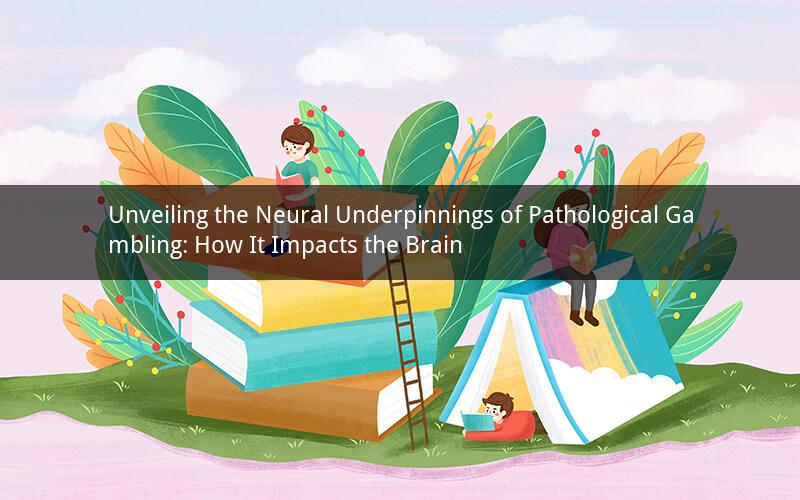
Pathological gambling, often referred to as gambling addiction, is a complex disorder that affects the brain's neural circuits. This article delves into the intricate relationship between pathological gambling and the brain, exploring the neural mechanisms that underlie this condition. By understanding how pathological gambling affects the brain, we can gain insights into the development and treatment of this addiction.
1. How does pathological gambling alter the brain's reward system?
Pathological gambling primarily impacts the brain's reward system, which is crucial for reinforcing behaviors and motivating individuals to seek out pleasurable experiences. When individuals engage in gambling, the brain releases dopamine, a neurotransmitter associated with pleasure and reward. Over time, excessive gambling can lead to a dysregulation of the reward system, resulting in a heightened sensitivity to rewards and an increased drive to gamble.
Research has shown that individuals with pathological gambling exhibit altered dopamine activity in the nucleus accumbens, a brain region involved in reward processing. Additionally, the prefrontal cortex, which plays a role in decision-making and impulse control, may be impaired in these individuals. This imbalance between the reward system and the prefrontal cortex can contribute to the compulsive nature of pathological gambling.
2. What role does stress play in the development of pathological gambling?
Stress can be a significant factor in the development of pathological gambling. When individuals experience stress, the brain releases cortisol, a stress hormone that can influence the reward system. Chronic stress may lead to a heightened sensitivity to rewards, making individuals more susceptible to engaging in gambling as a means of coping with stress.
Furthermore, stress can also disrupt the brain's neural circuits involved in emotional regulation. This disruption may contribute to the development of pathological gambling, as individuals may turn to gambling as a way to escape negative emotions or cope with stress.
3. How does pathological gambling affect cognitive functions?
Pathological gambling can have a profound impact on cognitive functions, including attention, memory, and decision-making. Studies have shown that individuals with gambling addiction may exhibit deficits in these areas, which can further exacerbate their gambling behavior.
Impaired attention can lead to difficulties in filtering out irrelevant information, making individuals more prone to impulsive gambling. Memory deficits may affect the individual's ability to learn from past experiences, leading to a cycle of repeated gambling despite negative consequences. Additionally, impaired decision-making can make individuals more susceptible to taking excessive risks, as they may struggle to weigh the potential benefits and drawbacks of their actions.
4. What treatments are available for pathological gambling?
Several treatments have been developed to address pathological gambling, including cognitive-behavioral therapy (CBT), medication, and support groups. CBT is particularly effective in treating pathological gambling, as it helps individuals identify and modify the thoughts and behaviors that contribute to their addiction.
Medications such as selective serotonin reuptake inhibitors (SSRIs) have been used to treat co-occurring mental health conditions that may contribute to pathological gambling. Support groups, such as Gamblers Anonymous, provide individuals with a community of peers who share similar experiences and can offer mutual support and guidance.
5. How can we prevent the development of pathological gambling?
Preventing the development of pathological gambling involves a multifaceted approach that addresses risk factors and promotes healthy behaviors. Some strategies include:
- Educating individuals about the risks and consequences of gambling.
- Encouraging responsible gambling practices, such as setting limits on time and money spent on gambling.
- Promoting healthy coping mechanisms for stress and emotional regulation.
- Providing access to treatment and support for individuals at risk of developing pathological gambling.
In conclusion, pathological gambling has a significant impact on the brain's neural circuits, affecting the reward system, stress response, cognitive functions, and overall well-being. Understanding the neural underpinnings of this addiction can help in the development of effective treatments and prevention strategies. By addressing the complex interplay between the brain and gambling behavior, we can work towards reducing the prevalence and severity of pathological gambling.